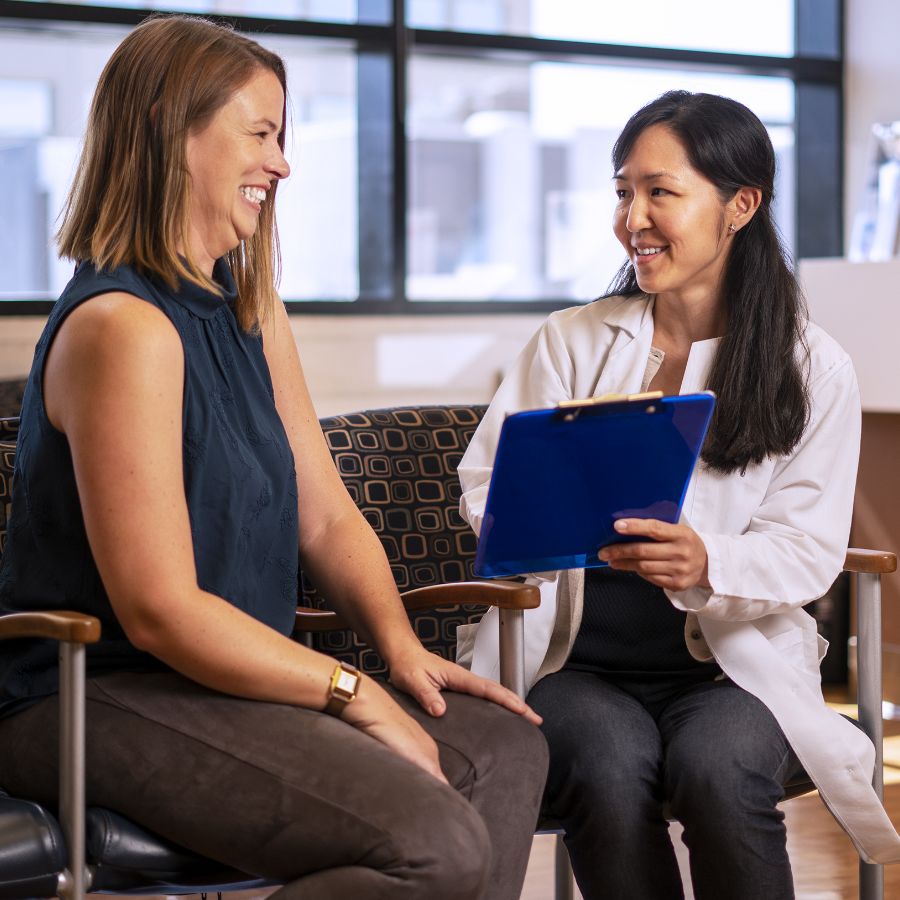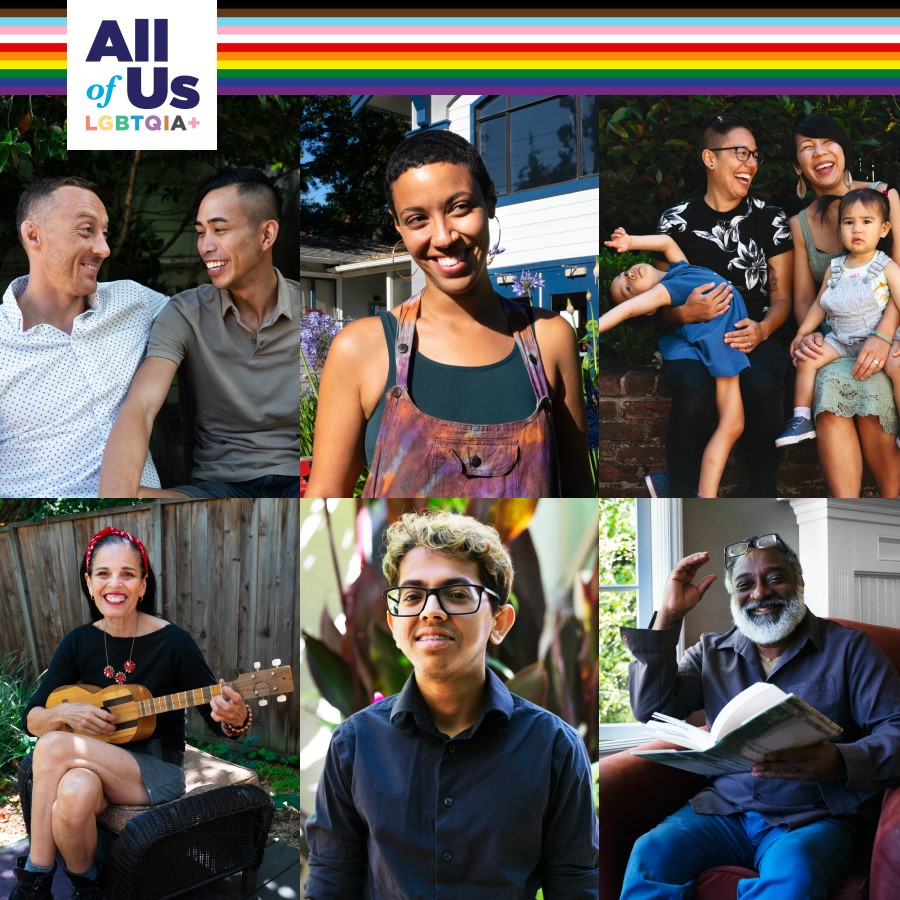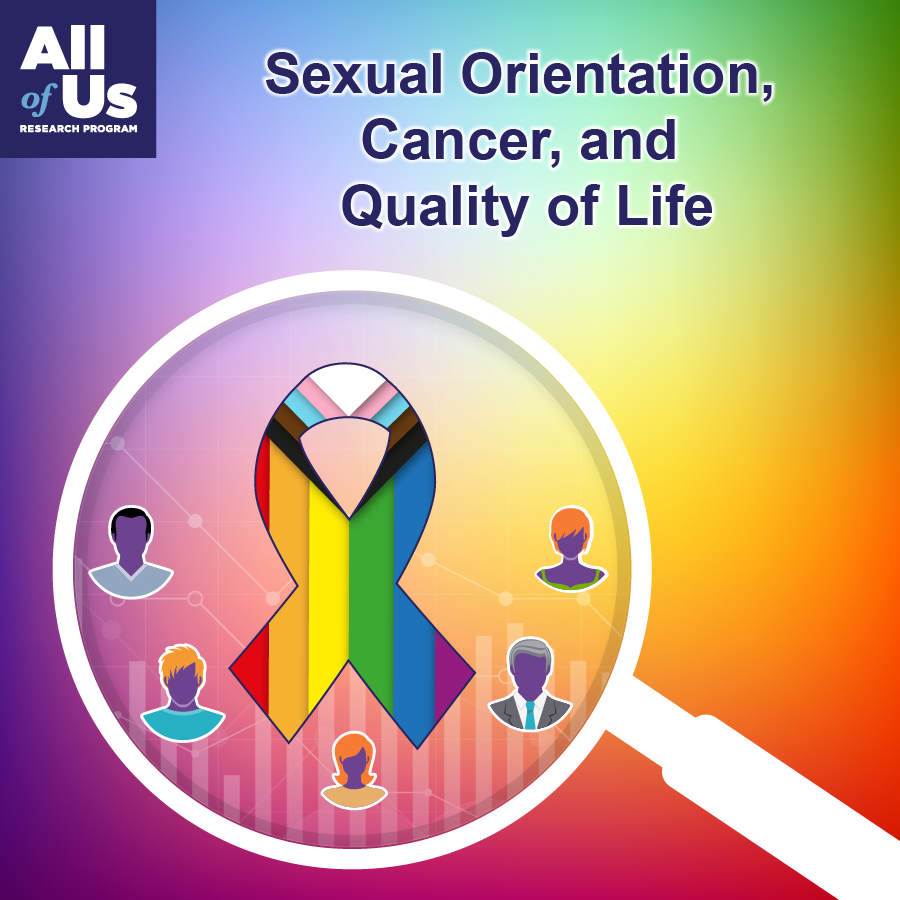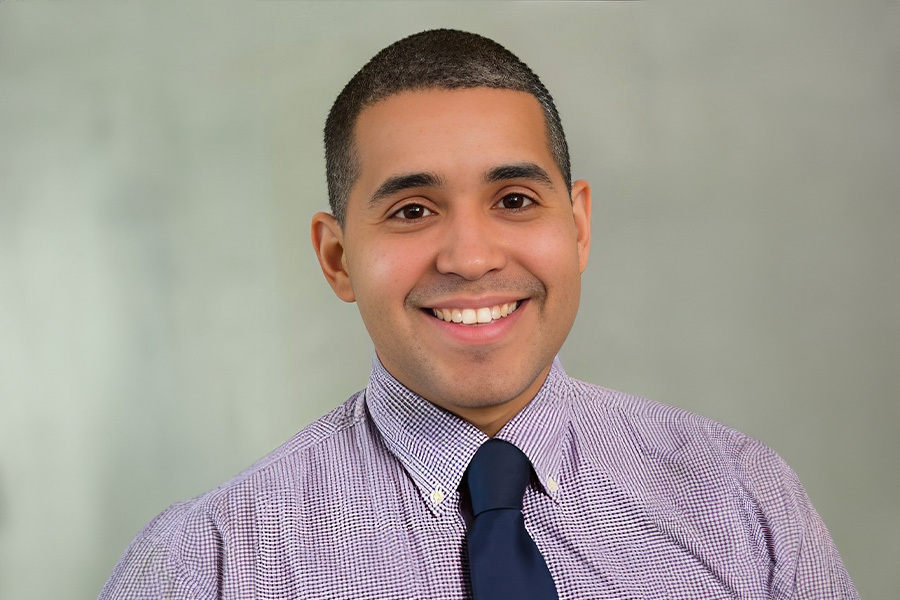
“I am a sexual and gender minority health researcher. My career has been successful because of my research focus, not in spite of it.”—Billy A. Caceres, Ph.D., R.N., Columbia University School of Nursing
Billy A. Caceres knows what it’s like to feel like an outsider.
Throughout childhood, Billy moved back and forth between the Dominican Republic, where he was born, and the United States, where he was raised and educated. As a result, he felt disconnected from both countries and cultures. Adding to his discomfort was a growing awareness that he was gay, a difficult fact for him to acknowledge in his culturally conservative homeland.
Today, he credits his early experiences for propelling him to a research career in which he can advocate for others who have been marginalized. He currently serves as an assistant professor at the Center for Sexual and Gender Minority Health Research at Columbia University School of Nursing. There, he uses All of Us data to gain insights into minority health disparities and find ways to improve long-term outcomes.
“Much of the research that’s been done with LGBTQ people has been around mental health, sexual health, and substance use disparities,” Billy said. “What we know is that depression, anxiety, alcohol, and tobacco use are all risk factors for chronic diseases, like cardiovascular disease,” he added. “The work that I’m trying to do is move the needle forward and to see, further down the line, if people continue to have these risk factors as they age, will they eventually develop chronic conditions like heart disease or cancer at higher rates?”
Curiosity and Determination Cultivated in Childhood
In 1985, when he was 6 months old, Billy’s parents immigrated to the United States and settled in the Bronx. Billy attended preschool and the first few years of elementary school in New York, learning to read and write in English. His parents decided to move back to the Dominican Republic when Billy started third grade. Though his parents spoke Spanish at home, he didn’t read or write the language of his peers at his new school.
“I would pick up my mom’s Cosmo magazines in Spanish to try to teach myself how to read in Spanish,” Billy recalled. He relied on his mom for homework help. “That’s when I learned that the ‘h’ is silent in Spanish.” For example, the word for hello in Spanish, “hola,” is pronounced “oh-la.” “In my little brain, I thought I needed to know all these things because the kids at school already did.” He felt that he didn’t fit in.
Billy faced another tough transition in middle school, when his parents divorced and his mother moved him and his younger sister back to New York. The three shared a bedroom in his aunt’s house in Baldwin, on Long Island, a suburban and, at the time, mostly White middle-class community 27 miles from the Bronx.
“I was the foreign kid when I was in the Dominican Republic, and then I became the foreign kid here, even though I spoke English fluently,” Billy said. Making his transition more difficult was being targeted as a gay teen. He was frequently disciplined for using what he called his “smart mouth” to defend himself.
“When people attempted to bully me for being gay, I stood up for myself. I was a queer kid, who was also a person of color, who was also now an immigrant,” Billy said. “Most of the kids around me were more affluent, their parents weren’t divorced. We had very different experiences.”
Billy turned to his studies, immersing himself in honors classes throughout high school and becoming active with volunteer community service opportunities. He visited the elderly at nursing homes and senior centers, cleaned up trash along his town’s beaches, and planted marigolds around the town center. He also participated in the student human rights council at Baldwin Senior High School, which renewed his interest in issues of equity and inclusion.
Compassion and Caring for Community Sparks Interest in Health Research
Throughout his childhood, Billy was keenly aware of people in his community who had been disadvantaged, and he wanted to help. Whenever he saw a person experiencing homelessness, he would cry. “From very early on, I was a sensitive child,” Billy said. His mother was concerned when he decided to move to New York City for college. “She didn’t think I was strong enough to make it, and I guess she was pleasantly surprised. I realized along the way that I’m actually a very resilient person.”
As a first-generation college student, Billy worked and trained as a peer health educator, informing students about smoking cessation, drinking in moderation, and sexual assault awareness. These interactions with students and his trainings influenced his decision to pursue nursing and public health.
“Being a peer educator was one of the best experiences I had in college,” Billy says. “Not only did we learn about the psychosocial aspects of alcohol and drug use, but we also learned about the biology behind it, how our body metabolizes drugs, which I found really fascinating.”
Billy combined his interests in biology and societal inequities and completed his bachelor’s degree in political science and his advanced degrees in nursing and nursing research. The field of nursing allowed him to translate political theory into health practice. At NYU’s Rory Meyers College of Nursing, he worked as a research assistant on a National Institute on Aging grant examining elder mistreatment in primary care and dental clinics. His bilingual skills enabled him to interview Spanish-speaking patients at New York health clinics.
NYU is also where he met his longtime partner, Mike. They met as juniors when they were both resident assistants and peer educators at NYU residence halls. Mike is now a New York school teacher for children of deaf adults. Billy and Mike married at City Hall in March 2022.
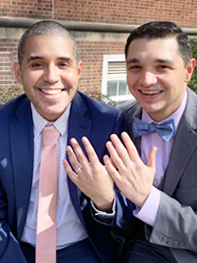
Early Researcher of All of Us
Billy finished his Ph.D. in 2017 and joined Columbia University. Meanwhile, NIH’s All of Us Research Program was launching its effort to build a unique database of health information from more than one million people across the United States from diverse backgrounds. Billy was eager to leverage the data for his research and registered for access to the program’s data platform, the Researcher Workbench.
“The All of Us Research Program is right up my alley, integrating psychosocial, behavioral, and biological data to better understand health disparities,” he said.
Billy is enthusiastic about the program’s launch of its initial set of genomic data, available to registered researchers through a “Controlled Tier.” This heightened level of access to the Workbench, which also includes more granular demographic data and electronic health record data, available to researchers who have taken additional steps and training.
Billy was one of the early researchers in the Controlled Tier, which is critical to his work and provides more detailed data on health conditions among sexual and gender minorities (SGM). He is currently building a study examining the baseline cardiovascular health disparities among participants who are SGM, compared with non-SGM adults.
“That’s what is so valuable about All of Us,” Billy said. “This program is longitudinal, so over the next 10 or 20 years, we can monitor the prevalence of participants’ chronic disease risk, like cardiovascular disease.” The All of Us genomic data, survey responses, and electronic health records all are valuable resources in providing insights into factors that may contribute to health disparities, he said.
“It’s important to study whether the disparities observed in sexual and gender minority people widen or narrow as they age,” Billy said. Ultimately, he hopes his research can lead to strategies for early prevention and diagnosis.
All of Us has given Billy the opportunity to collaborate with a community of scholars who share his deep commitment to documenting and analyzing health disparities. The goal of improving inclusion and diversity remains a work in progress, but it’s one that Billy fully intends to advance.
Share your story with All of Us
If you would like to recommend someone to be featured, please submit a suggestion to All of Us.
Are you Interested in the All of Us Research Program?
- Learn about participation in the program.
- Learn about opportunities for researchers.
